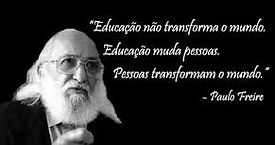Brandy Tackett, MA.ed., M.Ed.
Data
Standard 1: Student Learning Results
Standard 2: Student Learning as a Priority
Standard 4: Faculty Development
Education leaders promote a positive school culture that develops context-appropriate strategies to improve school programs and enhance student learning and performance. Education leaders assist school personnel to identify, understand, and use research-based and theoretically grounded learning strategies, curriculum, and instructional and assessment practices. Education leaders understand that well-planned, contextually appropriate professional development is essential for teacher reflective practice, professional growth, and enhanced student learning and performance. Education leaders develop a school culture that understands and is comfortable using data to assess progress toward learning goals and effectiveness of curriculum, instruction, and professional development programs.
Language above regarding the Description of Domain was taken directly from the USF EDA 6945 Administrative Practicum: Educational Leadership & Policy Studies: Description of Program Domains and Corresponding Florida Principal Leadership Standards (FPLS.)
KCC Southeast Elementary and Middle 2019-2020 Niche Rankings
DATA CHATS




Involving the PROFESSIONALS!
 |
|---|
 |
 |
I had the blessing of being Harvard
Data Wise Trained. This is a way of looking at the data from a learner-centered position as well as an instruction-centered position. It allows us an opportunity to collectively review the data and identify the one question ... that if answered, could solve our problem (note: there could be many, but the goal is to identify one target goal at a time.) It is imperative that data be compiled and presented to staff, but staff needs to engage in an authentic inquiry process. As a leader, it is dangerous to predetermine the problem from our "500 foot perspective." There are likely many variables that leadership alone is not aware of. Our building leaders and teachers know their instructional practices, they know the curriculum, as well as the student needs. These individuals are key players and should be an authentic part of the problem solving process. The biggest mistake a leader can make is to go into a new school, new school year, district, or a meeting and make assumtptions about data without knowing the right questions to ask and having the right "players" at the table.
Instructional Fundamentals

Relationship are REQUIRED!
Fostering a culture of relationships is integral to the success of any child. I am beginning with a PLC as a springboard to uncover our misconceptions and begin discourse. Then we will negotiate the building of relationships in very unique and diverse ways. Join my journey

Paolo Freire's Influence on my Belief - in Literacy
Excerpt: We do know that a child simply having the ability to transfer information from text to a workbook does not mean that there is a deep connection and a real “understanding” that exists. To read the ideas from individuals that preceded us and to gain an awareness of how their identities and experiences are shaped, we better understand ourselves. There is no way that we can have every lived experience to provide us with the opportunities to know and grow to maximize our greatest potential.